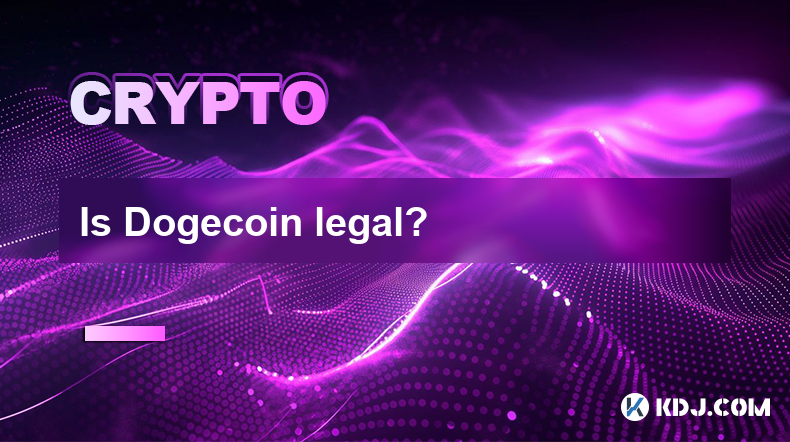-
 Bitcoin
Bitcoin $106,754.6083
1.33% -
 Ethereum
Ethereum $2,625.8249
3.80% -
 Tether USDt
Tether USDt $1.0001
-0.03% -
 XRP
XRP $2.1891
1.67% -
 BNB
BNB $654.5220
0.66% -
 Solana
Solana $156.9428
7.28% -
 USDC
USDC $0.9998
0.00% -
 Dogecoin
Dogecoin $0.1780
1.14% -
 TRON
TRON $0.2706
-0.16% -
 Cardano
Cardano $0.6470
2.77% -
 Hyperliquid
Hyperliquid $44.6467
10.24% -
 Sui
Sui $3.1128
3.86% -
 Bitcoin Cash
Bitcoin Cash $455.7646
3.00% -
 Chainlink
Chainlink $13.6858
4.08% -
 UNUS SED LEO
UNUS SED LEO $9.2682
0.21% -
 Avalanche
Avalanche $19.7433
3.79% -
 Stellar
Stellar $0.2616
1.64% -
 Toncoin
Toncoin $3.0222
2.19% -
 Shiba Inu
Shiba Inu $0.0...01220
1.49% -
 Hedera
Hedera $0.1580
2.75% -
 Litecoin
Litecoin $87.4964
2.29% -
 Polkadot
Polkadot $3.8958
3.05% -
 Ethena USDe
Ethena USDe $1.0000
-0.04% -
 Monero
Monero $317.2263
0.26% -
 Bitget Token
Bitget Token $4.5985
1.68% -
 Dai
Dai $0.9999
0.00% -
 Pepe
Pepe $0.0...01140
2.44% -
 Uniswap
Uniswap $7.6065
5.29% -
 Pi
Pi $0.6042
-2.00% -
 Aave
Aave $289.6343
6.02%
Is Dogecoin legal?
Despite varying regulations by region, Dogecoin remains legal to trade under federal law in the United States, but its speculative nature and high volatility pose significant investment risks.
Dec 24, 2024 at 03:02 am

Key Points:
- Legality by Region: Dogecoin's legal status varies across jurisdictions.
- Regulation in Different Countries: Governments have different approaches to regulating cryptocurrencies, including Dogecoin.
- Taxation and Accounting Considerations: Some countries tax cryptocurrency transactions, while others provide guidance for accounting purposes.
- Risks and Precautions: Understand the risks associated with Dogecoin before investing or transacting.
- Investment Considerations: Dogecoin's high volatility and speculative nature make it a risky investment.
- Security Measures: Protect your Dogecoin holdings by implementing appropriate security measures.
- Where to Buy and Sell Dogecoin: Various exchanges and platforms offer options for trading Dogecoin.
- Storing Dogecoin Safely: Consider using hardware wallets or reputable custodians to store your Dogecoin securely.
Legality by Region:
- United States: Dogecoin is legal to own and trade under federal law. It is classified as a security by the Securities and Exchange Commission (SEC).
- European Union: The EU has not specifically regulated Dogecoin but has adopted a general framework for regulating cryptocurrencies.
- China: Cryptocurrency transactions, including Dogecoin, are banned in China.
- Japan: Dogecoin is recognized as a legal payment method in Japan.
- Other Regions: Dogecoin's legal status in many other regions is still evolving, with varying regulations from country to country.
Regulation in Different Countries:
- United Kingdom: The Financial Conduct Authority (FCA) regulates cryptocurrencies under the Money Laundering, Terrorist Financing and Transfer of Funds (Information on the Payer) Regulations.
- Canada: The Canadian Securities Administrators (CSA) have established principles for regulating cryptocurrency trading platforms.
- Australia: The Australian Securities and Investments Commission (ASIC) regulates cryptocurrencies as financial products.
- India: The Reserve Bank of India (RBI) has banned banks and other financial institutions from dealing in cryptocurrencies.
- Other Regulations: Many other countries have implemented specific regulations for cryptocurrencies, with varying approaches to licensing, reporting, and consumer protection.
Taxation and Accounting Considerations:
- United States: Dogecoin transactions are subject to capital gains tax. The IRS provides guidance on reporting cryptocurrency income.
- Canada: The Canada Revenue Agency (CRA) treats cryptocurrencies as commodities for tax purposes.
- United Kingdom: The UK's HM Revenue & Customs (HMRC) taxes cryptocurrency transactions as income or capital gains.
- Australia: The Australian Taxation Office (ATO) considers cryptocurrencies as taxable assets.
- Other Countries: Tax regulations for cryptocurrencies vary by jurisdiction, so consult local tax authorities for specific guidance.
Risks and Precautions:
- Volatility: Dogecoin's price is highly volatile, making it a risky investment.
- Scams and Phishing: Be wary of scams and phishing attempts related to Dogecoin.
- Security Breaches: Exchanges and cryptocurrency platforms can be vulnerable to security breaches or hacking.
- Rug Pulls: Involves developers abandoning a cryptocurrency project and taking investors' funds.
- Regulatory Changes: Changes in government regulations can significantly impact the value and legality of Dogecoin.
Investment Considerations:
- High Risk: Dogecoin is a speculative investment with a high risk of loss.
- Diversification: Consider Dogecoin as a small part of a diversified portfolio.
- Financial Goals: Determine how Dogecoin fits into your overall financial goals and risk tolerance.
- Understand the Market: Research the Dogecoin market and understand factors that influence its price.
- Educate Yourself: Seek reliable information and guidance before investing in Dogecoin.
Security Measures:
- Hardware Wallets: Use dedicated hardware wallets designed for storing cryptocurrencies.
- Software Wallets: Reputable software wallets provide security features for storing and managing Dogecoin.
- Custodial Wallets: Consider using custodial services that provide professional-grade security measures.
- 2FA and Password Manager: Implement two-factor authentication and use a secure password manager to protect your account.
- Monitor Transactions: Regularly monitor your Dogecoin transactions and report any suspicious activity.
Where to Buy and Sell Dogecoin:
- Cryptocurrency Exchanges: Binance, Coinbase, Kraken, and other cryptocurrency exchanges offer Dogecoin trading.
- Peer-to-Peer Platforms: Platforms like LocalBitcoins and Bisq allow for peer-to-peer trading of Dogecoin.
- Retailers: Some retailers, such as Newegg and AT&T, accept Dogecoin as payment.
- Debit or Credit Cards: Coinmama and Simplex provide options for purchasing Dogecoin with debit or credit cards.
- Gift Cards: You can purchase Dogecoin gift cards from platforms like eGifter and Gyft.
Storing Dogecoin Safely:
- Hardware Wallets: Trezor, Ledger, and other hardware wallets provide offline storage for your Dogecoin.
- Custodial Wallets: Coinbase, Binance, and PayPal offer custodial services with insurance coverage for lost or stolen assets.
- Paper Wallets: Generate paper wallets to store Dogecoin offline, but ensure they are printed securely and kept in a safe location.
- Split Storage: Divide your Dogecoin holdings and store them in multiple locations to reduce risk.
- Multi-Signature Wallets: Co-manage Dogecoin funds with multiple signers using multi-signature wallets for enhanced security.
FAQs:
- Is Dogecoin a Safe Investment? Dogecoin is a speculative investment with high volatility and risks, including scams, security breaches, and regulatory changes.
- How Can I Purchase Dogecoin? You can purchase Dogecoin through cryptocurrency exchanges, peer-to-peer platforms, some retailers, and using debit or credit cards via third-party providers.
- What Are the Best Security Practices for Dogecoin? Use hardware wallets, implement 2FA, monitor transactions, and consider storing Dogecoin across multiple locations for enhanced security.
- Can I Use Dogecoin Outside the Cryptocurrency Circle? While retail adoption is growing, Dogecoin is still primarily used within the cryptocurrency ecosystem for trading, investing, and tipping.
- What Are Some Alternative Cryptocurrencies to Dogecoin? Other popular cryptocurrencies include Bitcoin, Ethereum, Litecoin, and XRP. However, each currency has unique characteristics and risks to consider.
Disclaimer:info@kdj.com
The information provided is not trading advice. kdj.com does not assume any responsibility for any investments made based on the information provided in this article. Cryptocurrencies are highly volatile and it is highly recommended that you invest with caution after thorough research!
If you believe that the content used on this website infringes your copyright, please contact us immediately (info@kdj.com) and we will delete it promptly.
- Crypto Bull Run Expert Prediction: Navigating the Generational Surge
- 2025-06-20 08:25:12
- Peter Schiff's Stablecoin Stance: Gold vs. Fiat in the Crypto Age
- 2025-06-20 08:25:12
- Wyoming Stable Token (WYST): Sei Network Emerges as a Frontrunner
- 2025-06-20 08:45:12
- Semler Scientific's Bitcoin Bet: From Healthcare Tech to Largest Holder?
- 2025-06-20 08:45:12
- Bitcoin's Balancing Act: Demand, Selling Pressure, and the Road Ahead
- 2025-06-20 08:50:12
- Cardano, XRP, and the Creator Economy: A New Era?
- 2025-06-20 09:25:12
Related knowledge

How to customize USDT TRC20 mining fees? Flexible adjustment tutorial
Jun 13,2025 at 01:42am
Understanding USDT TRC20 Mining FeesMining fees on the TRON (TRC20) network are essential for processing transactions. Unlike Bitcoin or Ethereum, where miners directly validate transactions, TRON uses a delegated proof-of-stake (DPoS) mechanism. However, users still need to pay bandwidth and energy fees, which are collectively referred to as 'mining fe...

USDT TRC20 transaction is stuck? Solution summary
Jun 14,2025 at 11:15pm
Understanding USDT TRC20 TransactionsWhen users mention that a USDT TRC20 transaction is stuck, they typically refer to a situation where the transfer of Tether (USDT) on the TRON blockchain has not been confirmed for an extended period. This issue may arise due to various reasons such as network congestion, insufficient transaction fees, or wallet-rela...

How to cancel USDT TRC20 unconfirmed transactions? Operation guide
Jun 13,2025 at 11:01pm
Understanding USDT TRC20 Unconfirmed TransactionsWhen dealing with USDT TRC20 transactions, it’s crucial to understand what an unconfirmed transaction means. An unconfirmed transaction is one that has been broadcasted to the blockchain network but hasn’t yet been included in a block. This typically occurs due to low transaction fees or network congestio...

What to do if USDT TRC20 transfers are congested? Speed up trading skills
Jun 13,2025 at 09:56am
Understanding USDT TRC20 Transfer CongestionWhen transferring USDT TRC20, users may occasionally experience delays or congestion. This typically occurs due to network overload on the TRON blockchain, which hosts the TRC20 version of Tether. Unlike the ERC20 variant (which runs on Ethereum), TRC20 transactions are generally faster and cheaper, but during...

The relationship between USDT TRC20 and TRON chain: technical background analysis
Jun 12,2025 at 01:28pm
What is USDT TRC20?USDT TRC20 refers to the Tether (USDT) token issued on the TRON blockchain using the TRC-20 standard. Unlike the more commonly known ERC-20 version of USDT (which runs on Ethereum), the TRC-20 variant leverages the TRON network's infrastructure for faster and cheaper transactions. The emergence of this version came as part of Tether’s...

How to monitor large USDT TRC20 transfers? Tracking tool recommendation
Jun 12,2025 at 06:49pm
Understanding USDT TRC20 TransfersTether (USDT) is one of the most widely used stablecoins in the cryptocurrency ecosystem. It exists on multiple blockchains, including TRON (TRC20). The TRC20 version of USDT operates on the TRON network and offers faster transaction speeds and lower fees compared to its ERC-20 counterpart on Ethereum. When discussing l...

How to customize USDT TRC20 mining fees? Flexible adjustment tutorial
Jun 13,2025 at 01:42am
Understanding USDT TRC20 Mining FeesMining fees on the TRON (TRC20) network are essential for processing transactions. Unlike Bitcoin or Ethereum, where miners directly validate transactions, TRON uses a delegated proof-of-stake (DPoS) mechanism. However, users still need to pay bandwidth and energy fees, which are collectively referred to as 'mining fe...

USDT TRC20 transaction is stuck? Solution summary
Jun 14,2025 at 11:15pm
Understanding USDT TRC20 TransactionsWhen users mention that a USDT TRC20 transaction is stuck, they typically refer to a situation where the transfer of Tether (USDT) on the TRON blockchain has not been confirmed for an extended period. This issue may arise due to various reasons such as network congestion, insufficient transaction fees, or wallet-rela...

How to cancel USDT TRC20 unconfirmed transactions? Operation guide
Jun 13,2025 at 11:01pm
Understanding USDT TRC20 Unconfirmed TransactionsWhen dealing with USDT TRC20 transactions, it’s crucial to understand what an unconfirmed transaction means. An unconfirmed transaction is one that has been broadcasted to the blockchain network but hasn’t yet been included in a block. This typically occurs due to low transaction fees or network congestio...

What to do if USDT TRC20 transfers are congested? Speed up trading skills
Jun 13,2025 at 09:56am
Understanding USDT TRC20 Transfer CongestionWhen transferring USDT TRC20, users may occasionally experience delays or congestion. This typically occurs due to network overload on the TRON blockchain, which hosts the TRC20 version of Tether. Unlike the ERC20 variant (which runs on Ethereum), TRC20 transactions are generally faster and cheaper, but during...

The relationship between USDT TRC20 and TRON chain: technical background analysis
Jun 12,2025 at 01:28pm
What is USDT TRC20?USDT TRC20 refers to the Tether (USDT) token issued on the TRON blockchain using the TRC-20 standard. Unlike the more commonly known ERC-20 version of USDT (which runs on Ethereum), the TRC-20 variant leverages the TRON network's infrastructure for faster and cheaper transactions. The emergence of this version came as part of Tether’s...

How to monitor large USDT TRC20 transfers? Tracking tool recommendation
Jun 12,2025 at 06:49pm
Understanding USDT TRC20 TransfersTether (USDT) is one of the most widely used stablecoins in the cryptocurrency ecosystem. It exists on multiple blockchains, including TRON (TRC20). The TRC20 version of USDT operates on the TRON network and offers faster transaction speeds and lower fees compared to its ERC-20 counterpart on Ethereum. When discussing l...
See all articles

























































































